Environmental groups meet with Birmingham Water Works board on Cahaba Beach Road project
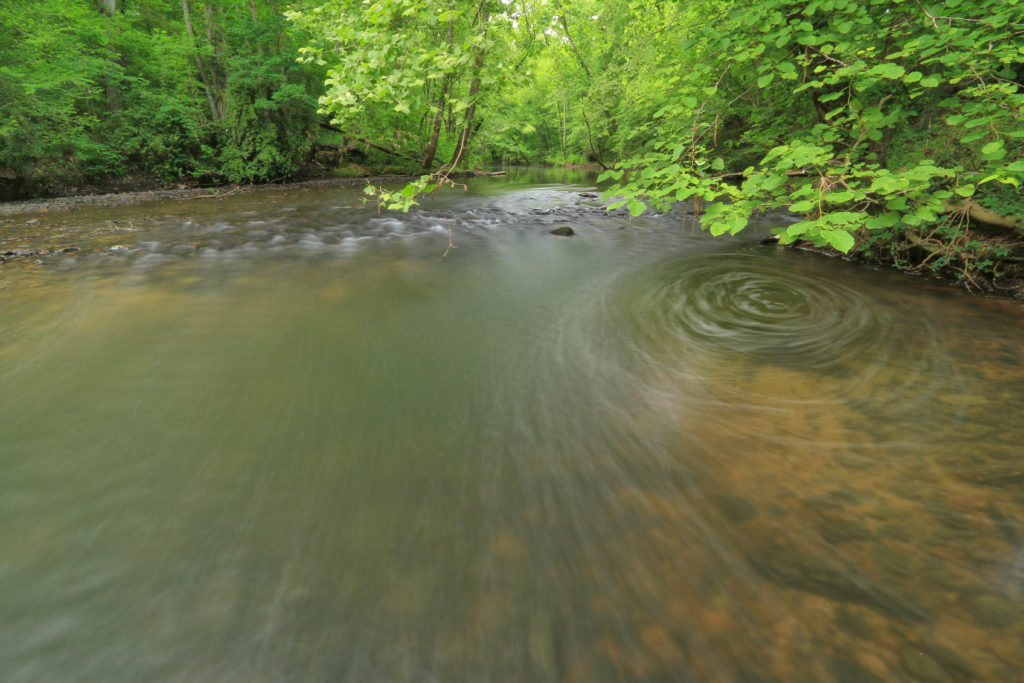
Environmental groups in the Birmingham area are teaming up to keep ALDOT‘s Cahaba Beach Road project from being built. On Thursday, the Cahaba River Society and Cahaba Riverkeeper attended the Birmingham Water Works Board of Directors meeting presenting their cases for why the road should not be built. The proposed road would stretch across the Little Cahaba River from U.S. 280, allowing over 8,000 cars a day to travel across an environmentally sensitive area, and cost anywhere from $10 million to $20 million WBHM reported According to Save the Cahaba, the river is vital for the areas drinking water as the Little Cahaba River is the connection between the Lake Purdy reservoir and the main Cahaba River. “Our biggest concern is how this will impact the forests that keep our drinking water clean,” Beth Stewart, Cahaba River Society executive director told the board, according to AL.com. “This road could cut a swath 100 to 200 feet wide, and ALDOT’s own estimates indicate if they had to grade and cut forest in that whole area, it could be the equivalent of about 40 football fields worth of forest loss and grading and disruption to the natural hydrology that’s keeping that water in the Little Cahaba clean,” she continued. Although their arguments were presented, the board made no motion to vote on the subject. Last month, the groups attended a public involvement meeting hosted by ALDOT. Over 250 people attended the meeting, including members from the The Cahaba River Society, Cahaba Riverkeeper, Alabama Rivers Alliance and Southern Environmental Law Center. But ALDOT and other civil engineers say the road will cut down on travel time, improve access to roads on both sides of the river, and improve connectivity between U.S. 280 and the Liberty Park area. According to ALDOT’s “next steps” listed on the project’s website; they will be conducting several different environmental analysis before proceeding with the project. ALDOT is considering several alternatives, including not building the road at all. One concerned Alabama resident has also started a Care2 petition to stop the project. So far, the petition has collected 1,320 signatures of its 2,000 signature goal. Once complete, it will be shared with the Alabama Department of Transportation; Federal Highway Administration; Shelby County Commissioners Lindsey Allison and Rick Shepard; Alabama Senator Jabo Waggoner; Alabama Senator Mark Blackwell.
Petition circulates to save Alabama’s Little Cahaba River
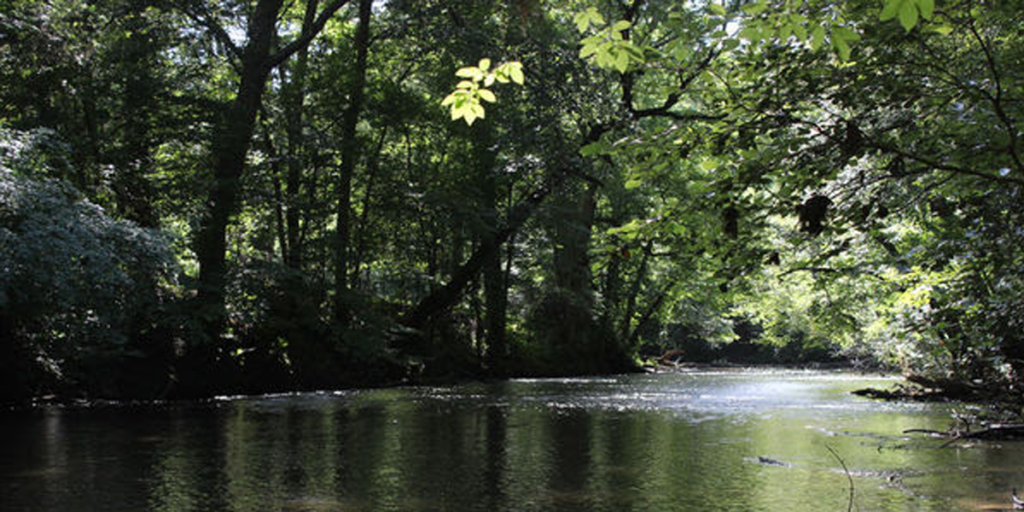
One concerned Alabama resident has started a Care2 petition to stop the Alabama Department of Transportation’s (ALDOT) Cahaba Beach Road project, which would pave and widen of Cahaba Beach Road and construct of a two-lane bridge across the Little Cahaba River. The new road would stretch across the Little Cahaba River from U.S. 280, allowing over 8,000 cars a day to travel across an environmentally sensitive area, and cost anywhere from $10 million to $20 million WBHM reported. The Little Cahaba is a major tributary of the upper Cahaba River Basin watershed, which includes 190 miles of bluffs, shoals, and sharp ridges before entering the lower Cahaba Basin on the Coastal Plain. Now the ALDOT and Shelby County wish to open Cahaba Beach Road, which has been closed to through traffic for two decades. Doing so, they claim, will create more “connectivity,” which Cahaba Beach Road resident and petition creator Trae Watson explains “would come at the direct expense of an undeveloped wilderness surrounding a source of Birmingham’s drinking water.” “The Little Cahaba is a special jewel of peace and quiet that is enjoyed daily by bikers, hikers, educational youth groups, and plain folks seeking a moment of solace in their busy lives,” the petition reads. “This road doesn’t solve traffic problems—it creates more. It would potentially send thousands of vehicles, including eighteen-wheelers, barreling through the surrounding neighborhoods. If it succeeds, this short-sighted idea will cause yet another special habitat to be lost for all generations to come,” the petition continues. In signing, petitioners affirm: No to routing 280 and Liberty Park traffic onto Cahaba Beach Road and other already heavily traveled, curvy roads; No to the risks posed by construction and traffic over the Little Cahaba which takes water from Lake Purdy to feed the Cahaba River and Birmingham’s water supply; No to jeopardizing TWO federally protected water cleaning mussel species in the river; No to spending millions of dollars that Shelby County doesn’t have to create yet another traffic problem; No to destroying the quiet wilderness of the Little Cahaba River which is enjoyed by countless citizens and is one of the few remaining natural environments amidst the encroachment of urban sprawl. The time of publishing, the petition had 922 supporters — 699 of them being from Alabama — of its 1,000 signature goal. Once complete, it will be shared with the Alabama Department of Transportation; Federal Highway Administration; Shelby County Commissioners Lindsey Allison and Rick Shepard; Alabama Senator Jabo Waggoner; Alabama Senator Mark Blackwell.
Cahaba Beach Road project causing contention between ALDOT and environmental groups

Environmental groups in the Birmingham area have joined together to keep ALDOT‘s Cahaba Beach Road project from being built. The new road would stretch across the Little Cahaba River from U.S. 280, allowing over 8,000 cars a day to travel across an environmentally sensitive area, and cost anywhere from $10 million to $20 million WBHM reported. According to Save the Cahaba, the river is vital for the areas drinking water as the Little Cahaba River is the connection between the Lake Purdy reservoir and the main Cahaba River. “The road would bring Highway 280 cut-through traffic across our drinking water source and is intended to open this sensitive area to private development,” Save the Cahaba said. “This would increase risks from construction, urban runoff, forest loss, heavy traffic, and a direct spill into the drinking water for the Birmingham area.” But ALDOT and other civil engineers say the road will cut down on travel time, improve access to roads on both sides of the river, and improve connectivity between U.S. 280 and the Liberty Park area. According to ALDOT’s “next steps” listed on the project’s website; they will be conducting several different environmental analysis before proceeding with the project. ALDOT is considering several alternatives, including not building the road at all. On Tuesday, ALDOT is conducting a public involvement meeting which several groups, including The Cahaba River Society, Cahaba Riverkeeper, Alabama Rivers Alliance and Southern Environmental Law Center have committed to attend. During the meeting ALDOT representatives are expected to update the attendees on plans for the road, and answer any questions. According to WBHM, anyone interested in the project may comment and indicate whether or not they would like the new road to be built.
Kicking Jim Zeigler out of statehouse backfiring? Be careful what you ask for insiders
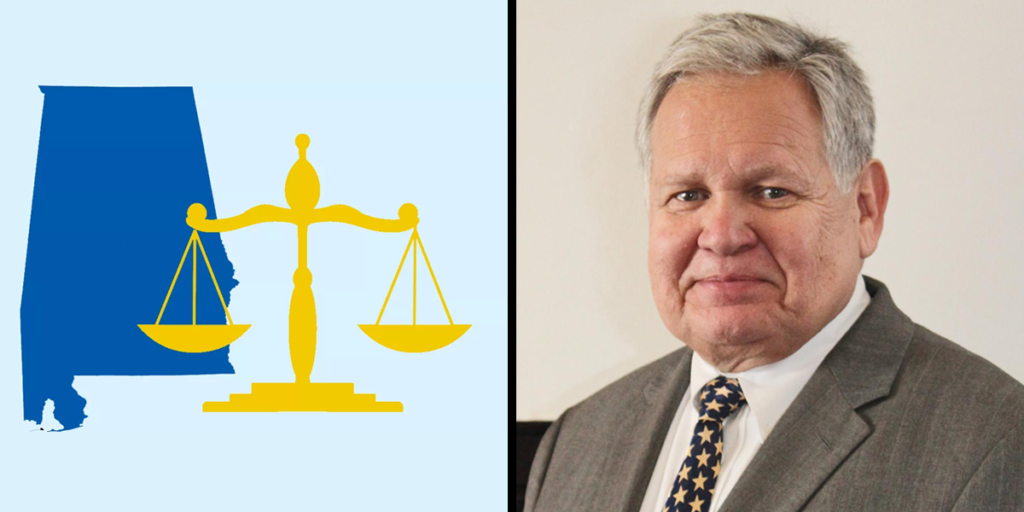
In a classic case of be careful what you ask for, State Auditor Jim Zeigler, who was told in April of 2018 that we was being unceremoniously kicked out the State House, “because they needed the space” all of a sudden, has found a new space for his office to reside. Ha! It’s in the same building as Ethics Commission. Just when lawmakers thought they were getting Zeigler out of their hair, one the state’s best loud and vocal advocates for taxpayers is now going to be ever so close to the people responsible for maintaining ethics. Allowing him to lodge complaints without so much as leaving the comfort of his building. Let’s be clear, if you think lawmakers wanted Zeigler out so they could use his space rather than to stop him from showing up at press conferences and watching what they were doing I’ve got a bridge to the beach in Az. to sell you. There are so many people in Montgomery who don’t like Jim’s in-your-face style, but as his recent showing in the GOP primary revealed he is doing just fine in the mind’s of the voters. Rather than aim to silence him we need to encourage more lawmakers to be like him. Zeigler is taking his job as a watchdog seriously. On a regular basis he’s questioning the actions and spending of those around him. Let’s not forget, it was Zeigler who pressed the issue of Governor Robert Bentley‘s ethics violations, he spoke out against a bizarre corrections contract for $300 million to a firm already tied up in ethics and bribery charges in Mississippi, he’s been outspoken in advocating for the prioritization of limited infrastructure and transportation money asking ALDOT and John Cooper questions they clearly don’t want to answer. As noted in his follow up yesterday, after THREE months of waiting as Cooper and his team dodge Alabama’s open records laws. It’s clear the efforts to move him were nothing but a stunt but those wanting to silence him are going to have to try harder.
Five things you need to know about Jim Zeigler
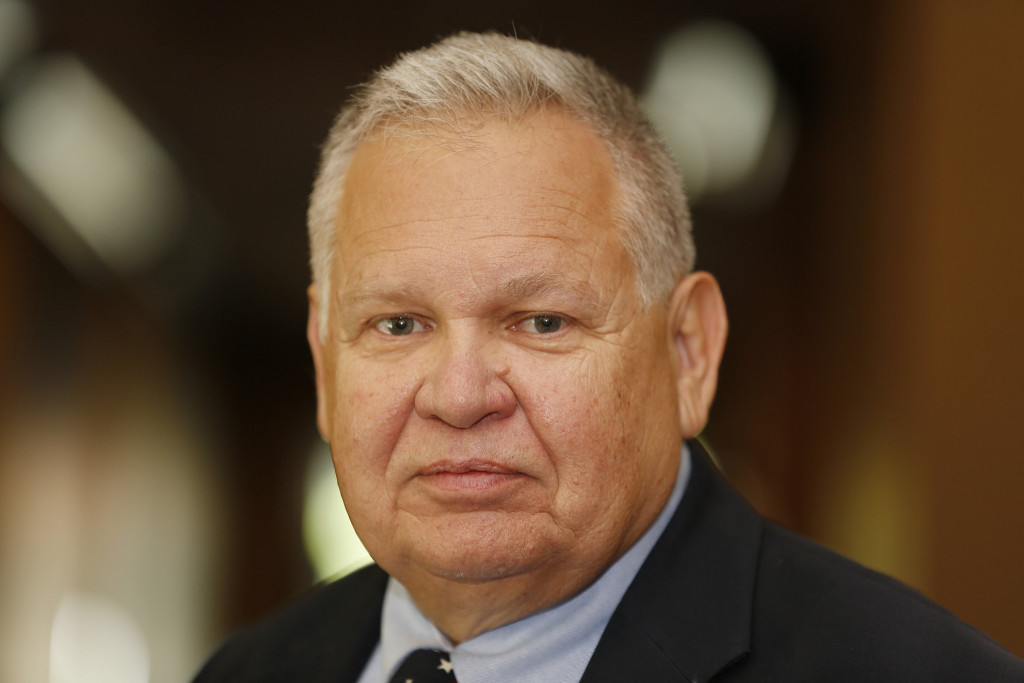
Incumbent State Auditor Jim Zeigler ran circles around his opponents in the June primary, taking home 55 percent of the vote. But now that the primaries are over, the real battle has begun. Zeigler one again faces Democratic nominee Miranda Joseph in the November 6 general election, creating a bit of a déjà vu for voters as the two ran against one another in 2014. With that in mind, here are the five things you need to know about Jim Zeigler: 1. He’s been Alabama’s state auditor since 2014, and has served in one other state office. Zeigler served on the Alabama Public Service commission in the 1970’s, and after running several unsuccessful campaigns for statewide offices in the early 2000’s, he was elected State Auditor in 2014. Since then he has been working hard: announcing a budget plan to save the state’s park system in 2015 and launching a volunteer-based program within his office to investigate claims of waste, fraud and abuse within Alabama state government, to his most recent quest to solve Alabama’s infrastructure problems; he’s become a public fixture nobody expected. 2. His background is in law and he practiced law for over 20 years. Originally from Sylacauga, Ala., Zeigler earned his JD from the Jones Law Institute at Faulkner University in Montgomery; obtaining his license in 1978. In 1993, he opened his own private practice, practicing as a mediator, arbitrator, and attorney until 2015, when he was elected State Auditor. Zeigler recently voluntarily relinquished his law license, after deciding not to run for Alabama Attorney General. 3. He’s fought hard against government waste while in office and continually seeks to keep Alabama lawmakers in check. The Alabama Department of Transportation’s (ALDOT) long contested “bridge to nowhere,” was a battle against wasteful spending Zeigler was willing to fight. Calling on ALDOT’s transportation director John Cooper to answer his questions about the need for an $87 million state-funded bridge project in Baldwin County — which would be a second bridge to Orange Beach, later saying the department needed to redirect funds from the bridge to the Mobile River Bridge and the I-10 Bayway Project. Zeigler has continued to “stir the pot” during his time in office, and seeks to continue what he sees as his job; keeping Alabama legislative officials in check. “I have a plan to turn the State Auditor’s office into a watchman against government mismanagement and waste,” Zeigler told Alabama Today. “It is starting to work.” 4. He was Student Government Association President at the University of Alabama. While in college, Zeigler served as President of the university’s Student Government Association (SGA) from 1970 to 1971. While there, he also served on the Athletic Committee with Coach Paul “Bear” Bryant. Note: Several members of the Alabama legislature have begun their political careers in universities student government associations. Governor Kay Ivey was a member of the SGA at Auburn University and Secretary of State John Merrill served as President of the University of Alabama’s SGA from 1986 to 1987. 5. He was one of the first legislative officials to file a complaint with the Alabama Ethics Commission regarding former governor Robert Bentley In March of 2016, before former governor Robert Bentley‘s impeachment process began, Zeigler filed a report with the Alabama Ethics Commission requesting they investigate Bentley’s affair with senior advisor Rebekah Caldwell Mason. A frequent critic of Bentley’s Zeigler released a statement saying; “the governor continues to disgrace the state of Alabama, and in my official capacity as state auditor, I am required to report these suspected violations.” Bentley was later impeached for his inappropriate affair with Mason, resigning from office in April of 2017.
Jim Zeigler to ALDOT: spend money on I-10 bridge, not duplicate intercoastal bridge
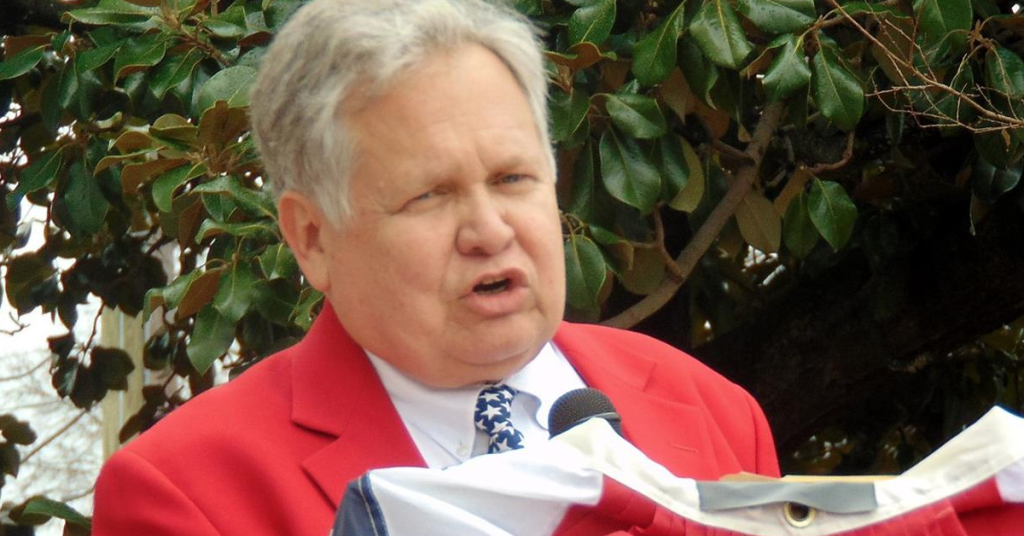
A $250 million grant for the Mobile River Bridge and the I-10 Bayway Project was denied by the federal government on Wednesday. Mobile and Baldwin county lawmakers applied for the grant last year under the Infra program, designed provide discretionary funds for projects in the U.S. that address critical issues facing the nation’s highways and bridges. Officials say the foundations for the bridge are already set in place, and the Alabama Department of Transportation will be meeting with “several ‘shortlisted’ teams to work on environmental documents, and furthering the design of the project,” according to WALA. Alabama State Auditor Jim Zeigler, says that given the denial of the federal grant; the state needs to redirect funds from the proposed duplicate Intercoastal Canal Bridge to the I-10 Bayway project. Ziegler released a statement Wednesday afternoon, saying, “the failure of the state to obtain the needed quarter-billion dollar ‘Infra’ grant means that discretionary funding must be redirected to the more mature projected for which there is a clearer need.” “Spending on the proposed duplicate Intercoastal Canal Bridge must be halted and redirected to the I-10 Bayway project,” he continued. According to Ziegler, “the I-10 project is designed to eliminate congestion in Mobile’s Wallace Tunnels and across the I-10 Bayway over Mobile Bay. The state of Alabama has been working on the project for years.” The controversial “duplicate Intercostal Canal bridge” Ziegler is referring to is the proposed bridge ALDOT is attempting to build between Orange Beach and Gulf Shores, Ala. Just over two months ago, Zeigler reached out to ALDOT trying to find answers about a proposed bridge, but neither John Cooper, transportation Director at ALDOT nor ALDOT have yet to respond to his request. Yesterday, Ziegler reached out to the Transportation Planning Organization to table a vote on including the bridge in their long term plan until he received answers. In their statement of response the TPO noted that, “ALDOT is heavily in support of the bridge.” The project received the necessary votes to be included in the plan.
Jim Ziegler asks TPO to table bridge decision pending John Cooper/ALDOT answers

Alabama State Auditor Jim Zeigler is back at it: trying to protect taxpayers from wasteful spending. Just over two months ago, Ziegler reached out to the Alabama Department of Transportation (ALDOT) trying to find answers about a proposed bridge between Orange Beach and Gulf Shores, AL. As Alabama Today previously reported, in a letter dated April 17, sent a letter to John Cooper, Transportation Director at ALDOT and William Patty, ALDOT Chief Counsel, inquiring about the need for an $87 million state-funded bridge project in Baldwin County — which would be a second bridge to Orange Beach. Zeigler requested the following documents from the ALDOT: Copies of any and all studies that demonstrated a need for a bridge over the Intercoastal waterway Any and all documents that show a change in the need for the Intercoastal bridge since the determination in 2016 that the bridge was unnecessary Any and all analyses to support spending $30-$87 million in state funds in light of the pressing infrastructure needs throughout the state Any and all documents that resulted in the range of costs projected ($30 to $87 million) Documents that show cost overruns on current and recent ALDOT projects According to the court filing from the bridge company, they agreed to widen their bridge at no additional cost to Please provide any and all documents that address why the option of widening the original bridge is not being utilized. John Cooper and ALDOT have yet to respond to Ziegler’s request. Which is why on Tuesday, he sent a letter to the Florida/Alabama Transportation Planning Organization (TPO) making a formal request that they delay action on an agenda item, Resolution FL-AL 18-12, during a meeting they have scheduled Wednesday. This Resolution would update the 2040 Florida-Alabama Transportation long range plan to include the controversial bridge. The report notes that, in April 11, 2018 the “TPO tabled action on: Gulf Coast Intracoastal Waterway Bridge from SR 180 (Canal Road) to Foley Beach Express; Wolf Bay Bridge and Connecting Roads from SR 180 (Canal Road) to CR 20. TPO amended the LRTP to add two projects: I-10 from US 29 to the Alabama State Line; Nine Mile Road from in the Vicinity of Beulah Road to East of I-10.” The decision to table action was a direct result of local residents speaking out to express their concerns. Joe Emmerson who leads the group opposed to the “Bridge to Nowhere” and other local residents attended the meeting and expressed their concerns over both the cost and need for the bridge as well as the effects it would have on existing property owners in the area. The report for Wednesday’s cites two public hearings on the project (one being the last TPO meeting) although in sworn testimony DOT officials expressly denied any public hearings have been held and residents have expressly spoken out against the fact they have not had the opportunity to have their voices heard. The resolution in question is one concerning the controversial Gulf Coast Intracoastal Waterway Bridge from SR 180 (Canal Road) to Foley Beach Express. Read Zeigler’s letter in full below: State of Alabama June 12, 2018 Mr. Gary Kramer Ms. Tiffany Bates Florida/Alabama Transportation Planning Organization Request that you postpone any positive action on Item F.1. (1) As the State Auditor for the State of Alabama, I hereby request that you delay any positive action on the first half of Resolution FL-AL 18-12 (Item F. 1, enclosure A) on your June 13, 2018 agenda. This is the Gulf Coast Intracoastal Waterway Bridge from SR 180 (Canal Road) to Foley Beach Express. The reason is that I have formally requested from the Alabama Department of Transportation vital public documents needed to address issues about this proposed project. ALDOT has not yet provided the documents as yet. If you will postpone any positive action on F.1 (1), I will notify you as soon the needed documents are provided. I will also provide you my independent review of this project. F. 1. Consideration of Resolution FL-AL 18-12 to amend the Florida-Alabama 2040 Long Range Transportation Plan for Two projects: (1) Gulf Coast Intracoastal Waterway Bridge from SR 180 (Canal Road) to Foley Beach Express Thank you. Jim Zeigler Alabama State Auditor 600 Dexter Ave., S-101 Montgomery, AL 36130 334-242-7010 Alabama Today has reached out to Austin Mount the Executive Director of the TPO to confirm they are in receipt of the letter, to ask if it has been forwarded to members of the commission and to seek comment and will update this story upon hearing back from them. He responded back Tuesday evening that the resolution item will remain on the agenda. Below is his full response: “We are in receipt of the request however the item still sits on the agenda and will be discussed tomorrow. ALDOT is heavily in support of the bridge and the TPO board will be informed of all materials received before they make a decision to deny/approve/table the bridge matter.” *6:28 p.m. CT: this article has been updated to include a response from TPO.
Alabama road project calls for unmarked graves relocation
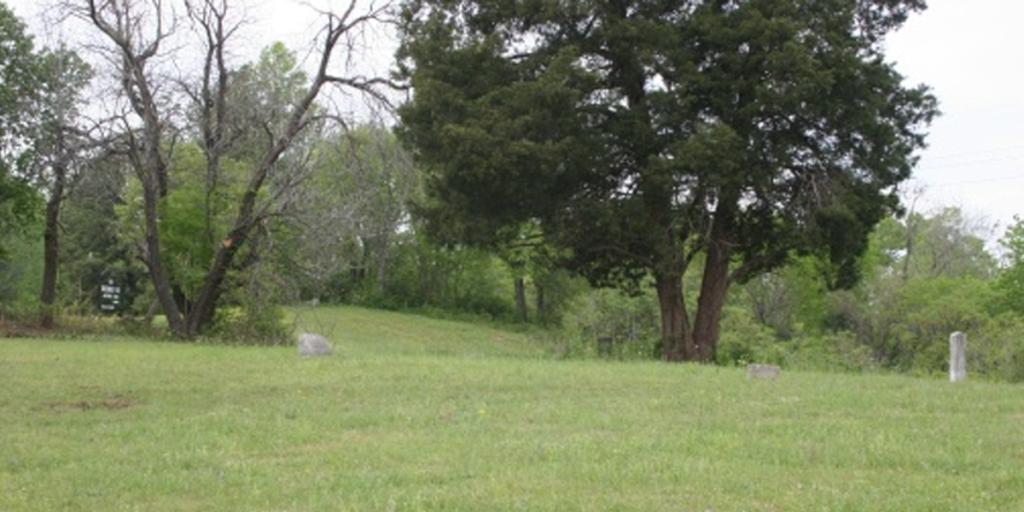
Work on a road project in Alabama has been paused pending the relocation of several unmarked graves. The Tuscaloosa News reports the Alabama Department of Transportation will need to relocate the graves near the former Bryce Hospital before proceeding with the Tuscaloosa project. David Kemp is a preconstruction engineer for the state Department of Transportation. Kemp told the Tuscaloosa County Road Improvement Commission Monday that officials are working to move the graves. The Department of Transportation contracted the University of Alabama’s Office of Archaeological Research last year to survey the property for graves. The road project aims optimize traffic flow along the McFarland Boulevard corridor and reduce median crossovers. It wasn’t clear Monday where the graves would be relocated. Republished with permission from the Associated Press.
True story of waking up to find ALDOT is secretly planning to build a fly-over bridge in your backyard
![[Photo Credit: Flickr user John Malone]](https://altoday.com/wp-content/uploads/2018/05/13258174014_555055548f_k-1024x683.jpg)
Baldwin County, Alabama is home to the picturesque cities of Gulf Shores and Orange Beach, among other charmingly quaint cities and towns. This uniquely beautiful part of the state annually draw tens of thousands of tourists and homeowners from around the nation to their beaches of crystal white sands. Local residents enjoy the southern charm of Alabama beaches, and food and entertainment amenities that feed a thriving tourist destination. For Mike Powell and his wife Lisa their move to Gulf Shores from Georgia should have allowed them the peaceful and quiet lifestyle they desired with the ability to stay active and enjoy their close knit community, but these days their lives are anything but quiet. When the couple first moved to Gulf Shores the sound from their front porch was near silence. For just over the last year, they would sit outside and enjoy the sounds of nature. Now, all they hear is the annoyingly distinct sound of traffic from the neighboring Foley Beach Expressway. Why the drastic change? Behind their house is a nearly 200 acre piece of undeveloped property with trees and land that previously served as a natural barrier for sound. Land that has now begun to be cleared with parts removed for what some locals are calling the #BridgeToNoWhere — a second fly-over bridge just shy of a mile and a half from the current Foley Beach Express Toll-Road. The existing and now proposed bridge would be built over the small canal leading from Gulf Shores to the beaches. At the time the bridge was first proposed in 2015-2016, the Powell‘s portion of neighborhood didn’t even exist. When state officials tabled the plan, it became a moot point to those in the area, something that would have been of no concern to future homebuyers like the Powell’s and the potential buyers of the next 100 houses that are currently waiting to be built. Alas in the dark of night or so it seems the plan was not only been resurrected, it has been brought back to life and fast-tracked with the new residents and potential residents about to be blindsided. Which is exactly what happened on Dec. 04, 2017. Powell was driving on the Foley Beach Express Way when he spotted the white Alabama Department of Transportation (ALDOT) truck coming from a new clearing in the undeveloped property described above. He pulled into the area and stopped the driver to ask what was going on. “We’re building a bridge,” the workers told him. When he mentioned that there’s another bridge down the road, they said “no, no, no. It’s going to be a new bridge.” Imagine Powell‘s surprise as he was told they were making way for that new bridge, practically in his backyard. More accurately, the bridge will be approximately 1/2 mile from his driveway and 1/4 from his neighbors. “We were going to have a City Council meeting about the schools that afternoon in front of the mayor and the staff, and I went and rushed and got these pictures developed and brought them before the board,” Powell said referring to a handful of photos he had from that day on his cell phone. “That’s when we were told by the mayor and the staff that they were planning a bridge.” It was the first time it was publicly talked about since 2016. There was no notice from the state or city officials. No hearings for public input, the work had already begun. A few weeks later Mike and Lisa met with Mark Ackerman, Public Works Director for the City of Gulf Shores, to get a better idea what the city was planning to build. “He personally took us in his vehicle and showed us where this [new bridge] was going to go down Foley Beach Expressway and come up back around County Road 4. But at that time he was saying there was just going to be this little bridge going up over our property about eight-nine feet high, because there were some wetlands there,” explained Powell. That made sense to the Powell‘s, so they left it alone, but they continued to hear more and more noises. Worried about the increasing sound levels, Powell reached out to ALDOT and in early January drove up to Mobile to meet with regional staffers Edwin Perry the regions Pre-Construction Engineer and Vincent Beebe the Assistant Region Pre-Construction Engineer, who are heading up the project. The pair took Powell to a conference room showing him map based design of the proposed bridge, looking down at them Powell noticed a significant problem – his neighborhood wasn’t even on the map. The property images the state had been using were from 2015. They hadn’t been updated when the project was revived towards the end of 2017. “When we got there to the Mobile office they had a table with the plans all out. Not a model, but a map, like a Google map,” explained Powell. “And I go, ‘where are our houses?’ Our part of the subdivision wasn’t there yet. So I asked them, ‘have you been to our subdivision?’ They responded, ‘no.’” Those working on the project in Mobile had failed to realize nearly 250 houses had been built in the area beside where they were planning to put their bridge. At that time no one overseeing the project had even been out to visit the site; it’s unclear if that has changed. “So I asked them how big this was going to be and what sort of volume of traffic they expected, and they couldn’t even answer that question,” Lisa weighed-in. “‘We’re not really sure’,” they told her. Since that time, Powell and his wife have had endless questions about the project set to destroy the peaceful life they once enjoyed. The problem? Answers have been hard to come by and when they can get them, they keep changing. First, they were told the bridge would be an evacuation route (this has since changed and the purpose has been designated as a way to ease Highway 59 traffic congestion). During
Hey, John Cooper, ALDOT, Governor Kay Ivey: you guys have one job…
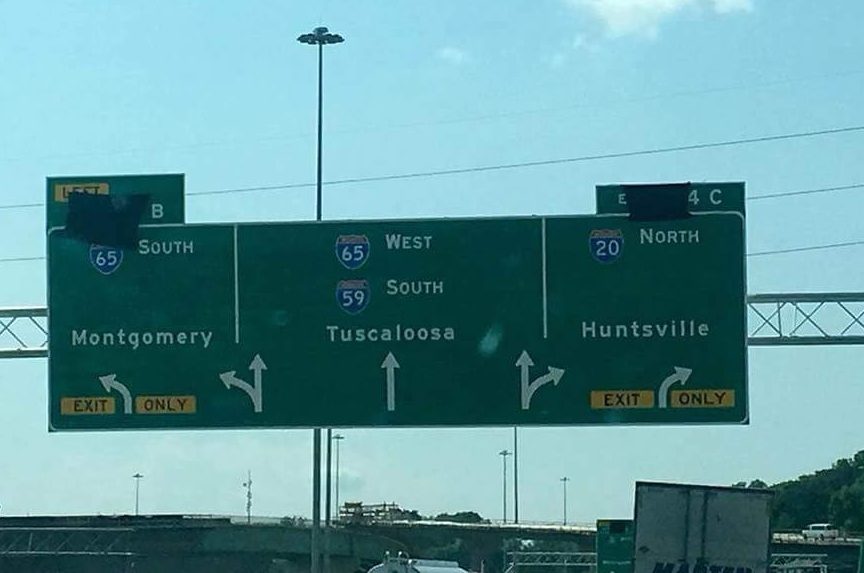
By now everyone’s seen the sign mix up at malfunction junction here in Birmingham. It would just be another government employee snafu (or more appropriately a bunch of snafus because someone designed that, someone made it, someone transported it and someone installed it all the while no one catching the error) that has gone viral on social media, but I think it’s bigger than that. It’s just another indication that Alabama’s Department of Transportation (ALDOT) keeps missing the mark. It’s clear: we have serious transportation problems in our state. From failing roads and bridges to general maintenance issues, there’s no shortage of projects for ALDOT to prioritize, so why do they continue to focus on the wrong projects? One look at the “Fix My Roads” project on Facebook — a page designed to allow citizens across the state to report roads and bridges that are in need of repair by taking photos/videos and posting them on this page along with a first person narrative — and you can see what Alabamians across the state would consider most important. But ALDOT rarely seems to prioritize what Alabama citizens do. Nevertheless the inevitable solution is to give ALDOT more money. Perhaps ALDOT actually needs more money. There is no denying the sad state of affairs when it comes to our infrastructure, but I have a novel idea for ALDOT spend the money you have already better. Prioritize. That’s what families and businesses around the state have to do on a daily basis. In a column I wrote for AL.Com that was published today, “Where ALDOT and two mayors get it wrong it’s up to Governor Ivey to get it right,” I make the case for John Cooper the Director of ALDOT and Governor Kay Ivey to take a look at what’s really necessary in our state and start there. We need our elected officials, at every level of government, in addition to those they appoint or hire, to work for the citizens they represent and prioritize of projects that will have the greatest benefit for everyone. The list of infrastructure projects that require funding from ALDOT and the states limited budget is never ending; and they aren’t concentrated to one area of the state. From I-595 in Huntsville, to I-10 in Mobile, the mess that is Birmingham highways our needs throughout the state are great. It seems like a novel idea, but instead Cooper and others want to spend taxpayer money with little to no evidence of need. If Ivey doesn’t step in, or Cooper doesn’t step up, how can they both look at taxpayers with a straight face and say that they’re true conservatives calling on tax increases? Why should either be given more money if they can’t spend what they have efficiently? Read the whole column to see an egregious example of a $87 million (before cost overruns of course) project that Cooper is pushing, a bridge that locals call the #BridgeToNoWhere. Here are the bills related to increasing gas taxes from last year as described by National Conference on State Legislatures. You can safely bet these bills will be back and in a non-election year your elected officials are more likely to pass them: AL S 86 2018 Alabama Road and Bridge Rehabilitation and Improvement Status: Failed – Adjourned – HOUSE Date of Last Action:* 2/6/2018 Author: Dial (R) Additional Authors: Beasley (D);Allen Ge (R);Holley (R);Whatley (R);Livingston (R) Topics: Bonding and debt, State taxes on gasoline and diesel, Transportation appropriations Summary: Provides for the establishment and incorporation of the Alabama Road and Bridge Rehabilitation and Improvement Authority, establishes the ATRIP-II Projects Special Fund, provides that the authority may issue bonds in an aggregate principal amount not exceeding a certain amount of which a certain amount thereof shall be issued to finance county and municipal road and bridge rehabilitation and improvement projects and the balance thereof issued to finance state road and bridge. History: Click for History AL S 89 2018 Gasoline and Diesel Fuel Taxation Status: Failed – Adjourned – SENATE Date of Last Action:* 1/9/2018 Author: Orr (R) Topics: State taxes on gasoline and diesel Summary: Relates to gasoline and diesel fuel taxation, authorizes a county commission to call for a referendum on the levy of an excise tax on gasoline and diesel fuel not to exceed a certain amount per gallon for specific road and bridge projects identified by the county prior to the referendum, provides that the excise tax could only be in effect for a period not to exceed a certain time period, provides for subsequent local referendums asking that new levies be authorized. History: Click for History AL H 360 2018 Gasoline and Diesel Fuel Taxation Status: Failed – Adjourned – House Transportation, Utilities and Infrastructure Committee Date of Last Action:* 2/1/2018 Author: Mooney (R) Topics: State taxes on gasoline and diesel, Transportation appropriations Summary: Relates to gasoline and diesel fuel taxation, authorizes a county commission to call for a referendum on the levy of an excise tax on gasoline and diesel fuel not to exceed five cents ($.05) per gallon for specific road and bridge projects identified by the county prior to the referendum, provides that the excise tax could only be in effect for a period not to exceed five years, provides for subsequent local referendums asking that new levies be authorized. History: Click for History AL S 377 2018 Colbert County Status: Vetoed – Pocket Vetoed by Governor Date of Last Action:* 04/08/2018 – Vetoed Author: Stutts (R) Topics: Local transportation funding, State taxes on gasoline and diesel Summary: Relates to Colbert County, authorizes the Colbert County Commission to levy a road and bridge construction excise tax on gasoline and other motor fuels, provides for the distribution of the proceeds to the county road and bridge fund to be used by the county and municipalities in the county for road and bridge construction in the county. History: Click for History
State Auditor Jim Zeigler questions ALDOT’s John Cooper about spending priorities
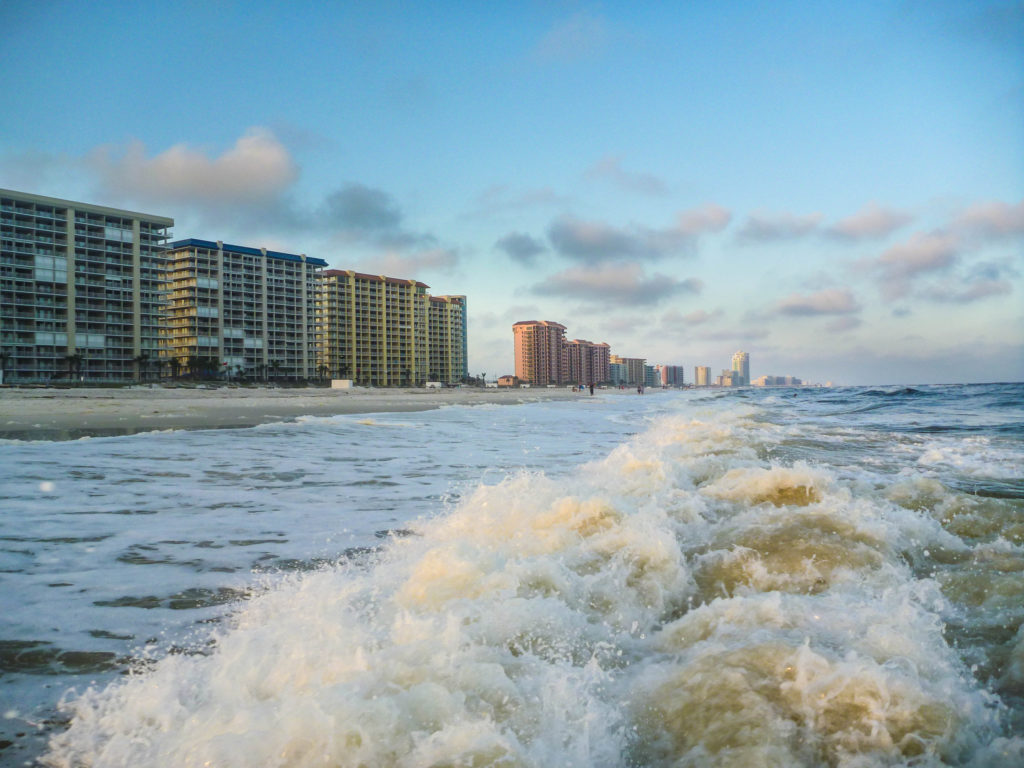
Tasked with providing accountability to the taxpayers of Alabama by maintaining accurate records of all personal property valued at $500 and above, State Auditor Jim Zeigler is taking his responsibility to the people of Alabama one step further: questioning the spending priorities of the Alabama Department of Transportation (ALDOT). On Tuesday, Zeigler sent a letter to John Cooper, Transportation Director at ALDOT and William Patty, ALDOT Chief Counsel, inquiring about the need for an $87 million state-funded bridge project in Baldwin County — which would be a second bridge to Orange Beach. Zeigler requested the following documents from the ALDOT: Copies of any and all studies that demonstrated a need for a bridge over the Intercoastal waterway Any and all documents that show a change in the need for the Intercoastal bridge since the determination in 2016 that the bridge was unnecessary Any and all analyses to support spending $30-$87 million in state funds in light of the pressing infrastructure needs throughout the state Any and all documents that resulted in the range of costs projected ($30 to $87 million) Documents that show cost overruns on current and recent ALDOT projects According to the court filing from the bridge company, they agreed to widen their bridge at no additional cost to Please provide any and all documents that address why the option of widening the original bridge is not being utilized. “I have more questions than I do answers about the proposed additional bridge. I hope to solve that with my specific requests for public records,” Zeigler explained. “With other pressing needs for infrastructure improvements, we need to make sure that this $30 to $87 million-dollar project is the best use of our limited funds.” Zeigler continued, “Could this money be better spent to finish ‘Bloody 98’ in Mobile County; to solve congestion on I-65, U.S. 280 and I-565; and to address dozens of local projects? The public needs to know, and I intend to figure it out.” Read Zeigler’s letter below:
Proposed new Baldwin County beach bridge spurs lawsuits, public activism
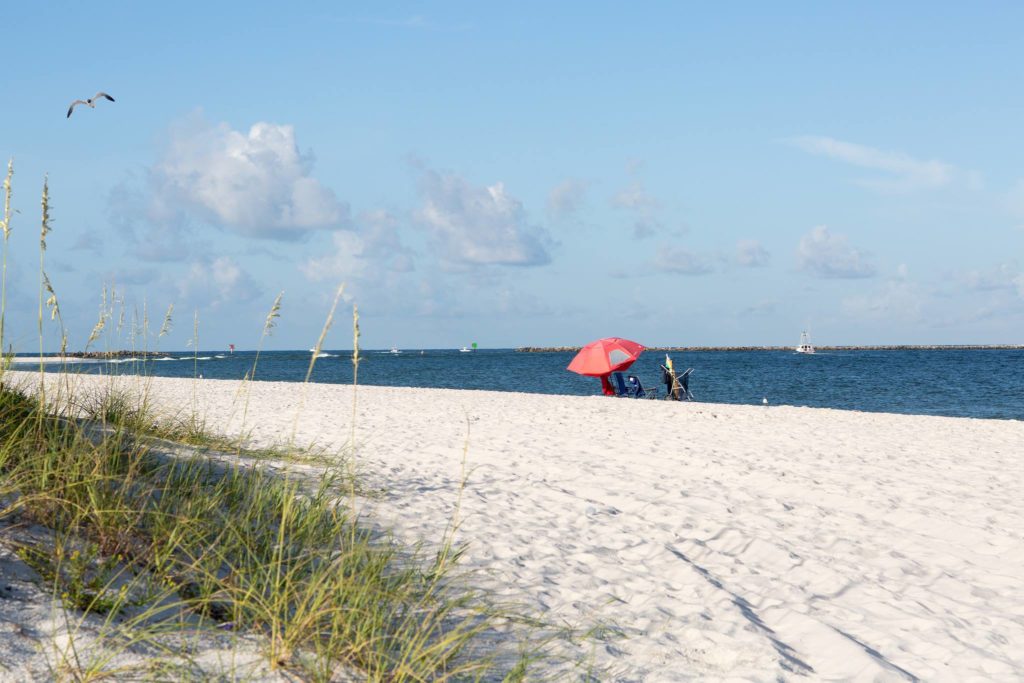
The battle over bridges continues in Baldwin County where an $87 million state-funded bridge project is being blamed for wasting taxpayer funds and diverting much-needed state resources away from other critical state infrastructure projects. Under fire is Director John Cooper of the Alabama Department of Transportation (ALDOT) for his plans to build a new bridge connecting the Foley Beach Express to Canal Road in Orange Beach. On one side of the argument is the Baldwin County Bridge Company (BCBC) a subsidiary of American Roads LLC, the company that was brought in as a private-public partnership to build and operate the Foley Beach Express — a toll bridge as an alternative to Highway 59. The toll was intended to save travelers time and money. Rather than sitting in congested traffic and waiting for over 25 stop lights on the highway, the Foley Beach Express allows drivers to cruise to the beach, all the while bringing in much-needed funds for local infrastructure improvement. In support of the bridge, “We have to be able to move traffic., we’ve got to be able to evacuate and we have to be able to grow,” Orange Beach Mayor Tony Kennon told AL.com. “One bridge with a toll does not help us do that.” Kennon has long been an active critic of the toll road, going on the record hoping the owners previous financial troubles would mean the city could buy the bridge at a low cost. Last summer, to help satisfy frustrations American Roads unveiled their “Beach Express, GO!” initiative, which included lowering tolls throughout the summer, and even “lifting” the tolls during peak congestion times around concerts and widely attended events as part of their first steps in a comprehensive plan to work with the state and community to provide the safest and most efficient service to those headed to or from the beach this summer and beyond. And after a year of debate, local officials last August settled on widening the existing Foley Beach Express bridge with a third lane that will be reversible depending on traffic needs rather than building a third bridge to help ease congestion. But ultimately negotiations broke down when ALDOT requested that the BCBC give the city of Orange Beach the bridge at no cost. Thus, plans for the additional bridge resurfaced. Which is why the BCBC has filed a complaint against the State of Alabama. Filed on April 2, the BCBC is objecting the ALDOT’S petition to “unjustifiably” take BCBC’s property “by eminent domain.” Outside push-back Some Baldwin County residents are pushing back against the bridge as well. A 600-plus member Facebook group dubbed the Bridge2Nowhere says it has opposed the project since it was first suggested in 2015. The group’s leader, a 25 year resident of the Gulf Shores/Orange Beach area, Joseph Emerson believes people are being misled to think the bridge is a necessary solution to the traffic congestion. The group is actively opposed to the use of eminent domain to take land and properties the state will need for this bridge. Emerson is active on Facebook debunking rumors and myths about the additional bridge and pushing back against DOT and the Mayor’s justifications. “I keep seeing interviews of people saying, ‘We need a bridge because the traffic is so bad.’ PEOPLE! THINK!,” Emerson posted. “Without a north/south access to the beach… traffic will be compounded not alleviated. This bridge project is not a solution!” ALDOT has not responded to Alabama Today for comment.


